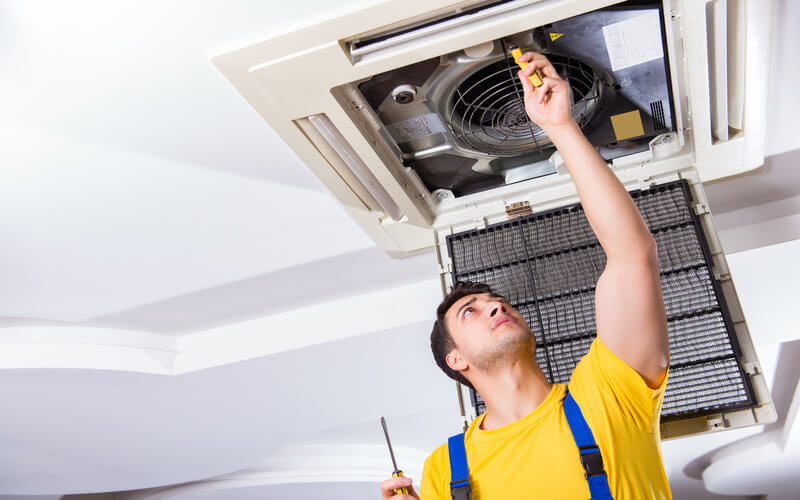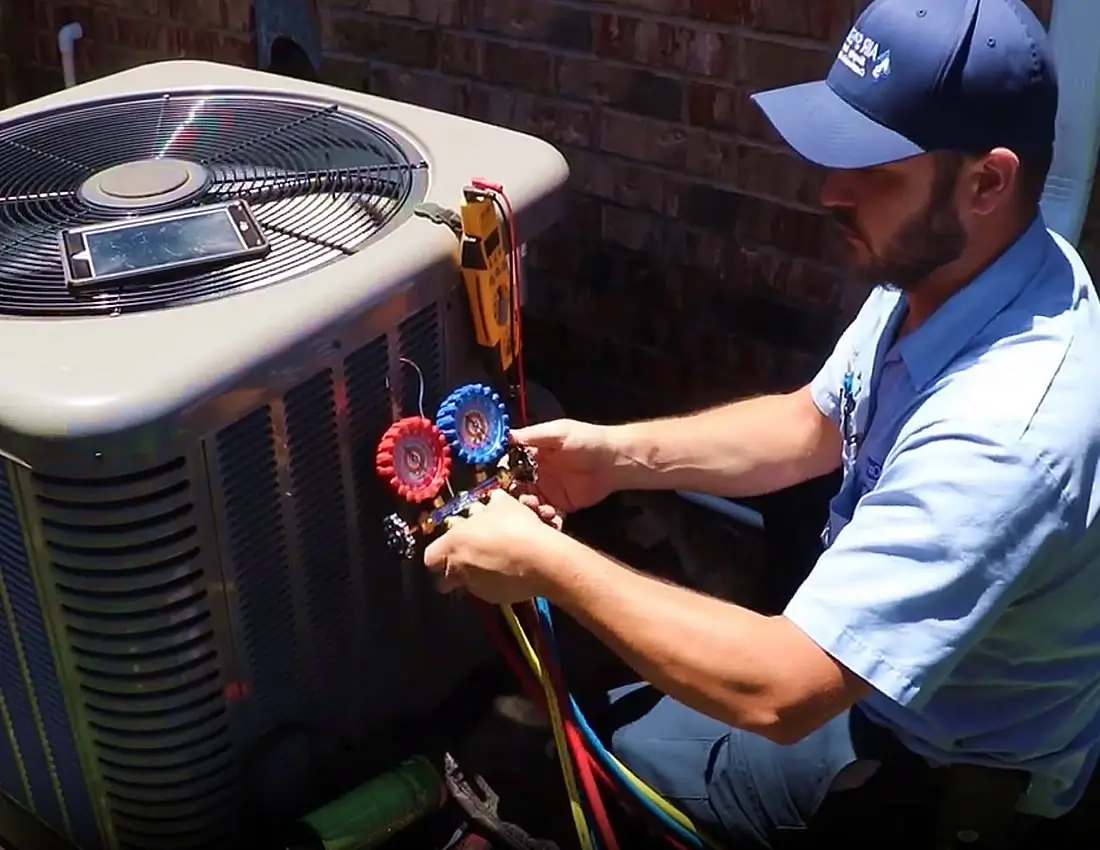How Ac Repair can Save You Time, Stress, and Money.
How Ac Repair can Save You Time, Stress, and Money.
Blog Article
3 Simple Techniques For Air Conditioning Repair
Air conditioning Repair Near Me: Specialist Cooling System Restoration Guarantees Your Home Stays Comfortable Throughout The Year
Types of Air Conditioning Systems
When taking on AC repair work, understanding the type of a/c system you're handling can save time, money, and aggravation. Ever questioned why some units cool a room quicker than others? Or why particular systems appear to break down more frequently? Let's peel back the layers.
Central Air
Some Ideas on Ac Repair Near Me You Should Know
Envision a cool breeze streaming through a whole house, whispering convenience into every corner. Central air systems do precisely that. They use a network of ducts to disperse cooled air, relying on a compressor and condenser outside, coupled with an evaporator coil inside. However when this complex beast falters, identifying the concern can be like finding a needle in a haystack.
Split Systems

Split systems are a popular option for lots of homes-- part indoor system, part outdoor compressor. website They use flexibility and performance, however their double nature implies repair work can include either component. Have you ever heard an unusual sound outside your house just to discover the indoor system isn't cooling? That's a timeless sign of a split system problem.
The Best Guide To Fix Air Conditioner
Window Units
These compact warriors fight summer heat by fitting snugly into a window frame. They combine all components into a single box. Their simpleness often implies fewer repair work headaches, however ignoring filters or enabling particles buildup can result in lessened performance or breakdowns.
Ductless Mini-Splits
The Air Conditioner Repair Near Me Statements
Ductless systems bypass ductwork totally, making them ideal for homes without existing ventilation. They're peaceful, efficient, and remarkably resistant. Yet, when repair work are needed, technicians need to be adept at handling refrigerant lines and electrical connections-- no little accomplishment.
Quick Recommendation Table
| Type | Secret Includes | Typical Repair Work Issues |
|---|---|---|
| Central air conditioning | Ductwork, whole-house cooling | Duct leakages, compressor failure |
| Split System | Indoor & & outdoor systems | Refrigerant leaks, fan motor problems |
| Window Unit | All-in-one, easy installation | Unclean filters, electrical faults |
| Ductless Mini-Split | No ducts, zoned cooling | Line leakages, sensing unit malfunctions |
See This Report on Repair Air Conditioner Near Me
Deciphering one of the most Regular A/c Issues
Have you ever wondered why your air conditioning system unexpectedly stops cooling during a sweltering afternoon? One typical culprit is a filthy or blocked air filter. This tricky bad guy limits airflow, forcing your system to work overtime, which not just lowers effectiveness but can likewise result in premature breakdowns. Picture trying to breathe through a headscarf taken in dust-- it's exhausting!
Another regular misstep is refrigerant leaks. These undetectable leakages do not simply reduce cooling power but can also harm the compressor, the heart of your air conditioner system. How often do you look for uncommon hissing sounds or ice formation on the coils? Catching these signs early can conserve you from pricey repairs down the line.
Beyond the Basics: Lesser-Known Issues
The 25-Second Trick For Repair Air Conditioner Near Me
In some cases, the thermostat itself is the mischief-maker. Miscalibrated or defective thermostats send mixed signals, triggering the a/c to cycle unpredictably. Ever experienced your a/c switching on and off in rapid succession? That's called brief cycling, a sly effectiveness drainer that can break elements quicker than you 'd anticipate.
Electrical issues, such as used electrical wiring or a malfunctioning capacitor, might hide below the surface area. AC Repair. These often manifest as air conditioner units stopping working to begin or unexpectedly closing down. A professional eye knows to evaluate these components with precision tools, something a casual look won't reveal
Expert Tips for Diagnosing Common AC Issues
Facts About Ac Air Conditioner Repair Revealed
- Check and replace air filters frequently-- every 1 to 3 months depending upon use and environment.
- Listen for uncommon noises like rattling or buzzing that could indicate loose parts or electrical faults.
- Check the outdoor system for debris or blockages that hamper air flow and trigger getting too hot.
- Try to find frost accumulation on evaporator coils, a tip towards refrigerant problems or airflow restrictions.
- Check the thermostat settings and recalibrate if the temperature level readings feel off.
Quick Reference Table: Manifestation & & Probable Triggers

| Symptom | Probable Cause | Professional Pointer |
|---|---|---|
| Warm air blowing | Low refrigerant or filthy coils | Clean coils and inspect for leaks instantly |
| Brief cycling | Thermostat problems or oversized system | Change thermostat settings and speak with sizing standards |
| Unit won't begin | Electrical faults or capacitor failure | Test wiring and replace capacitors as required |
| Water leakage | Blocked drain line or frozen evaporator | Clear drain lines and check for coil icing |
DIY Air Conditioner Upkeep Tips
The Buzz on Repair Air Conditioner Near Me
Ever seen your air conditioning unit sputtering like an old engine on a hot summertime day? Overlooking subtle indications typically means more than simply a sweaty afternoon-- it's a prelude to unforeseen air conditioning repair expenses. What if you could catch those whispers before they turn into wails? Routine do it yourself maintenance can be your very first line of defense.
Easy Actions to Keep Your Air Conditioner Running Smoothly
Top Guidelines Of Ac Air Conditioner Repair
- Tidy or Change Filters: A blocked filter resembles trying to breathe through a headscarf. Every 1-3 months, check and swap out your filters. It enhances airflow and performance, avoiding compressor pressure.
- Examine the Condenser Coils: Dust and particles serve as unnoticeable blankets smothering your unit's cooling power. Gently brush or vacuum the coils, however prevent severe chemicals that may deteriorate the metal.
- Check the Drain Line: When was the last time you glanced at your drain pan? A blocked drain can trigger water leakages and foster mold growth. Flushing it with a vinegar solution monthly keeps the circulation clear.
- Seal and Insulate: Are your ductworks whispering leaks? Sealing spaces with mastic or foil tape boosts effectiveness and reduce irregular cooling.
Pro Tips Beyond the Basics
- Step your unit's voltage to catch subtle electrical wear before it stimulates huge problems.
- Listen for uncommon hums or rattles-- these acoustic breadcrumbs frequently indicate loose parts or failing motors.
- Keep outside systems shaded but make sure a minimum of two feet of clearance around them for optimal airflow.
Ask yourself: Are you hearing your a/c's quiet SOS or simply waiting on it to shout? Taking some time for DIY AC maintenance changes reactive repair work into proactive care, saving sweat, tension, and yes, cash.
Ac Repair Near Me Fundamentals Explained
Why Knowledge in Air Conditioner Repair Work Matters
Envision this: your air conditioning unit sputters and groans during a scorching afternoon, leaving you sweltering indoors. Would you rely on a newbie fumbling with fragile elements, or would you look for the peace of mind of a expert AC professional!.?.!? The complexities of modern-day a/c systems require precision and experience. A minor miscalculation can escalate a small breakdown into a costly disaster.
The Ultimate Guide To Air Conditioner Repair Near Me
Unseen Complexities Behind the Cool Breeze
Lots of ignore the layers hidden underneath the smooth exterior of an air conditioner system - Air conditioning Repair Near Me. From refrigerant leakages that calmly drain pipes effectiveness to malfunctioning thermostats that misread temperature levels, these concerns need more than a fundamental toolkit. Experts have an eager eye for detecting problems that average homeowners neglect
Necessary Tips for Choosing the Right Specialist
What Does Fix Air Conditioner Do?
- Certification and Training: Validate qualifications; a specialist trained in the most recent HVAC technologies is invaluable.
- Experience with Specific Systems: Not all air conditioning systems are created equivalent; discover somebody knowledgeable about your design's quirks.
- Diagnostic Technique: Skilled service technicians use sophisticated tools-- like electronic leakage detectors and thermal imaging-- to determine hidden faults.
What to Anticipate from a Pro's Diagnostic Process
| Action | Function | Specialist Insight |
|---|---|---|
| Visual Inspection | Recognize obvious wear or damage | Look for deterioration or uncommon noises-- a telltale indication frequently overlooked |
| Pressure Testing | Detect refrigerant leakages | Subtle pressure drops can mean micro leaks undetectable to the naked eye |
| Electrical Checking | Make sure circuit integrity | Loose connections can simulate serious mechanical failures |
Indicators on Fix Air Conditioner You Need To Know
Why Do It Yourself Typically Falls Short
Tempting as it is to tinker with your air conditioner system, do it yourself repairs regularly miss the root cause. For instance, completing refrigerant might momentarily cool your space but ignores leaks that aggravate in time. Professional professionals don't just spot symptoms; they hunt down the underlying mechanical and electrical faults that sap performance.
The 6-Second Trick For Air Conditioning Repair Near Me
Concerns to Ask Before Employing
- What diagnostic tools do you use to recognize problems?
- Can you describe the repair procedure and anticipated results?
- Are you familiar with the refrigerants suitable with my unit?
- Do you follow security procedures for managing electrical elements?